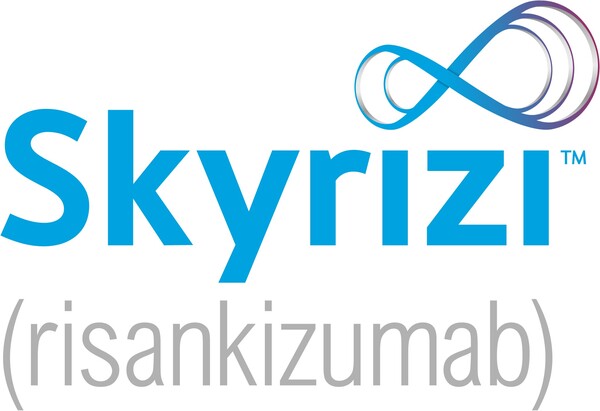
AbbVie Korea's interleukin-23 (IL-23) inhibitor Skyrizi (risankizumab) has expanded its indications to treat moderate-to-severe active Crohn's disease in adult patients (18 and older) following psoriasis and psoriatic arthritis.
Skyrizi has won approval and received insurance benefits for treating moderate-to-severe adult plaque psoriasis requiring phototherapy or systemic therapy (including biologics) and active psoriatic arthritis in adults with an inadequate response to or intolerance of prior disease-modifying anti-rheumatic drugs (DMARDs).

AbbVie Korea said Thursday that Skyrizi won the nod from the Ministry of Food and Drug Safety (MFDS) to treat adult patients with moderate to severe active Crohn's disease who have not responded adequately to or cannot tolerate existing therapies or biologics.
Crohn's disease is a type of inflammatory bowel disease in which the intestines are chronically inflamed, resulting in symptoms including diarrhea and abdominal pain, as well as weight loss, fatigue, and fever. In 2022, the number of Crohn's disease patients in Korea totaled 31,098. It is characterized by many young patients, with 20,709 patients (about 67 percent) in their teens and 30s.
The disease is characterized by repeated remissions and relapses, requiring continuous treatment and management.
According to AbbVie Korea, the approval is based on the results of a global, multicenter, randomized, double-blind, placebo-controlled phase 3 study, which evaluated the efficacy, safety, and tolerability of Skyrizi in adult patients with moderate to severe active Crohn's disease.
In the clinical studies of induction therapy -- ADVANCE and MOTIVATE -- 1,419 patients were randomized to receive 600 mg intravenously, 1,200 mg intravenously, or placebo at weeks 0, 4, and 8. Clinical remissions and endoscopic responses were measured by stool frequency (SF) and abdominal pain score (APS) at 12 weeks.
The FORTIFY study evaluated 462 patients with clinical response to 12 weeks of intravenous induction therapy with this drug in the ADVANCE and MOTIVATE studies. Patients were randomized to continue with maintenance therapy with 360 mg of this drug subcutaneously or maintenance therapy with 180 mg of the drug subcutaneously every eight weeks for up to 52 weeks or to discontinue induction therapy with this drug and receive a placebo subcutaneously every eight weeks. The co-primary endpoints were clinical remission and endoscopic response at 52 weeks.
In all three studies, the safety profile of Skyrizi in patients with Crohn's disease was consistent with what was previously known, with no new safety risks observed. In the ADVANCE study, the most common adverse events (AEs) observed in the Skyrizi treatment arm were headache, nasopharyngitis, and fatigue. In the MOTIVATE study, the most common AEs were headache, arthralgia, and nasopharyngitis. In the FORTYFY study, the most common AEs were disease worsening, nasopharyngitis, and arthralgia.
"Crohn's disease is an inflammatory bowel disease that causes inflammation anywhere along the entire digestive tract, from the mouth to the anus. If left untreated, it can make life difficult for patients with severe pain, urgency to defecate, and frequent loose stools," said Professor Kim Tae-il of the Gastroenterology Department at Severance Hospital. "Skyrizi's clinical studies demonstrating efficacy in both induction and maintenance therapy, as well as mucosal healing and endoscopic remission, are expected to address the unmet needs of patients with Crohn's disease."
Choi Yun-seok, Medical Advisor at AbbVie Korea, said the approval of Skyrizi for the additional indication of Crohn's disease was based on the efficacy and safety of Skyrizi in clinical studies, including clinical remission and endoscopic remission.
"We are pleased that this approval will provide an effective treatment option for patients with Crohn's disease who have an unmet need for treatment," Choi added.

